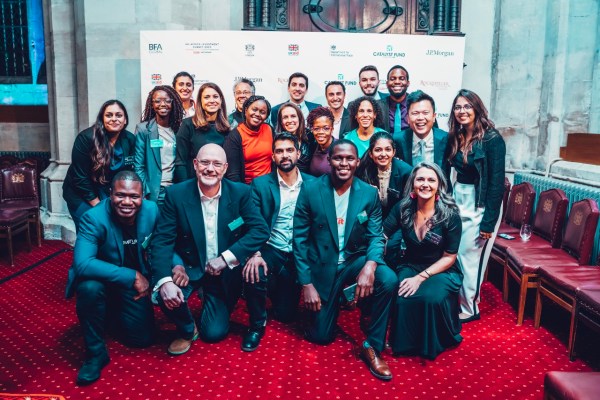Catalyst Fund, a global accelerator managed by BFA Global, announced the 8th cohort for its Inclusive Fintech Program today.
The accelerator runs the flagship program annually and with a focus on Kenya, Nigeria, South Africa, Mexico and India, selected startups receive £80,000 (~$100,000) in grant capital, six months of support and connections with follow-on investors.
In 2020, all five countries had representatives in the accelerator. However, the selected six startups this year are from Kenya, Nigeria, and South Africa. These startups offer embedded finance solutions; Maelis Carraro, Catalyst Fund MD, explains the thought process behind this selection in a statement.
“Today, fintech is rapidly evolving to the point where it’s no longer a standalone vertical. Embedded finance offerings have the potential to improve the value of products in adjacent sectors significantly while finding new ways to better reach and serve low-income individuals via touchpoints they already know and trust,” she said.
Here are the startups in the 8th cohort. First off, from Kenya, Koa enables users to save and invest, gaining control over their finances. Lami is an insurance platform and API that enables more individuals and businesses to access insurance coverage. Power allows gig and salaried workers access to earned wages and other financial services, and contribute to savings via partner banks.
From Nigeria, Indicina facilitates lending for individuals and small businesses through AI-powered digital credit infrastructure. Jetstream allows businesses to export goods across borders and access trade financing in Nigeria and Ghana.
Representing South Africa, Kandua connects skilled home service professionals with access to customers, professional tools and digital financial services.
What is interesting about the companies in this cohort is that they are predominantly led or co-founded by women as all startups except Kandua have a female founder.
“It was a conscious decision to make this cohort more inclusive for women given the gap in funding and support to women founders, particularly in emerging markets,” Carraro said to TechCrunch. “For example, founders in our previous cohort were all male. We are consciously making an effort to support as many women founders as we can going forward.”
According to an IFC report, only 11% of seed funding capital in emerging markets goes to companies with at least a woman on their founding team. The numbers are lower for later-stage funding despite evidence that investing in gender-diverse teams leads to more substantial business outcomes.
These startups will join the Catalyst Fund’s existing portfolio of 37 companies, which have raised over $122 million in follow-on funding since 2016.
Lami CEO Jihan Abass says her insurance company will use the investment to enhance its platform features, get more third-party integrations, and put data security and ISO certifications in place. For Indicina and CEO Yvonne Johnson, the capital from Catalyst Fund will enable the company to expand its platform, which will include new AI capabilities to improve credit in Africa.
This cohort, which is all-African, represents Catalyst Fund’s continued effort to support fintech startups on the continent. It adds to the growth of a sector that has consistently received most of the VC money coming into the continent. Last year, fintechs accounted for 31% of the total funding raised by African startups per Briter Bridges data.
Catalyst Fund has the backing to keep this going. Last year, it announced $15 million in additional funding from the UK Foreign, Commonwealth and Development Office (FCDO) and JPMorgan Chase & Co., to accelerate 30 new inclusive fintech startups by 2022.
Since then, the fund has financed 12 startups and will need to add 18 between now and next year to achieve that objective. But having funded Chipper Cash, Turaco, Sokowatch, Cowrywise, which just closed a $3M pre-seed round, among others, the total number of startups in its portfolio sits at 43.


Recent Comments